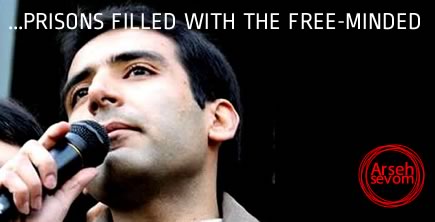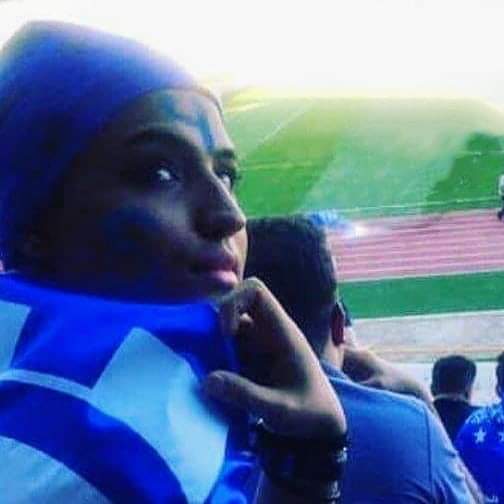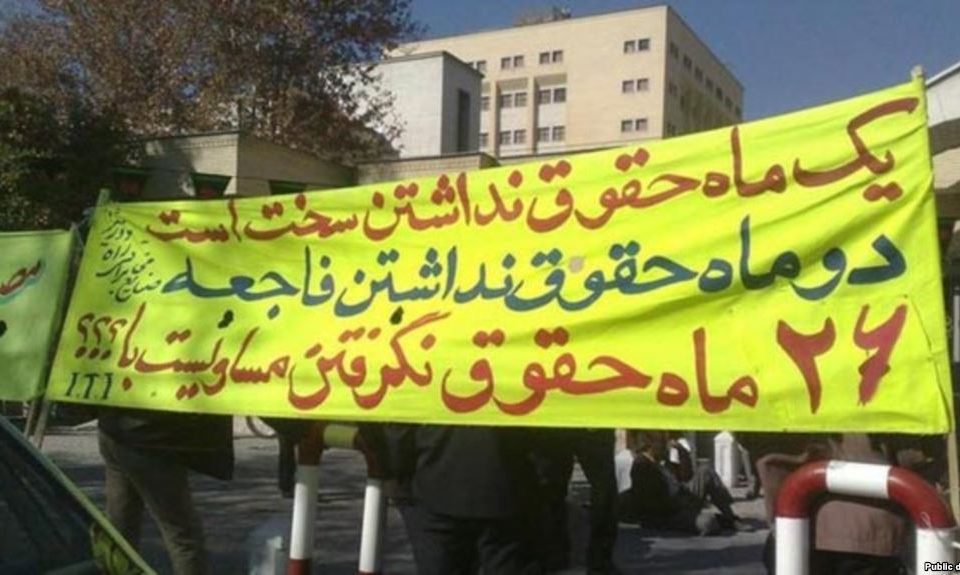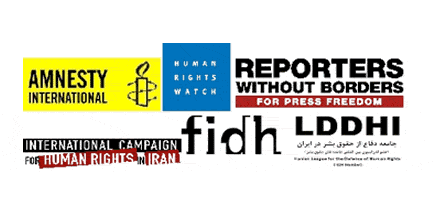
Human Rights Groups Call for an End to House Arrests of Mousavi, Karroubi, and Rahnavard
February 14, 2013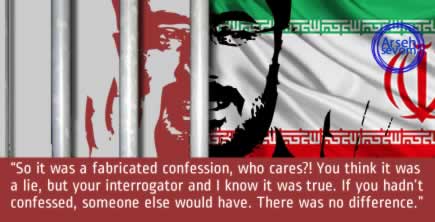
A Letter to My Torturer
February 18, 2013Arseh Sevom — Student leader, Majid Tavakoli, locked up in prison in Iran, will be awarded the International Student Peace Prize in a ceremony in Norway on February 15. Authorities announce new categories of criminalized speech in advance of the upcoming presidential elections. Mehdi Karroubi, Zahra Rahnavard, and Mir Hossein Mousavi remain under house arrest while their children are harassed by authorities, and secret executions continue in Iran’s prisons. The situation has gone from bad to worse when it comes to the economy. New sanctions are on the way, while the government tries to placate the population by offering a pittance for the New Year holidays.
Majid Tavakoli, Student Peace Prize Winner, Iranian Prisoner
On Friday, February 15, Majid Tavakoli will be awarded the International Student Peace Prize award in absentia. In September 2012 it was announced that he would be the 2013 laureate. Tavakoli is serving a nine-year sentence for speaking out as a student. Most of you will remember that when the Iranian authorities tried to humiliate him by publishing a photo of him in hijab, a worldwide campaign began to show solidarity with the imprisoned student.
Vigdis Lian President of The Norwegian UNESCO commission stated:
“Students are often the first on the barricades when a society moves in the wrong direction and systematized attacks on education expands. Academic persons, schools, students and universities are increasingly susceptible for violence and threats. They are exposed for arbitrary harassment and imprisonment, or simply disappear. Why is education so threatening for the people in charge?
… This year’s prize winner, Majid Tavakoli, is a role model for student all over the world. We join in the congratulations.”
Majid Tavakoli’s 2008 speech can be viewed on YouTube (with English subtitles)
New Round of Sanctions: Iran Prepared for Barter
Tehran Bureau [en] reported that the US imposed its newest round of sanctions on the 6th of February, aimed at further restricting Iran’s ability to trade with the rest of the world. The targets: trading oil for gold and precious metals along with financial, shipping, and communications companies.
The situation will surely affect the next presidential elections, and, as we reported earlier, some officials are already warning against “economic unrest.” As a result of the new sanctions, the Iranian Ministry of Industry, Mining, and Trade has established a “barter committee” to be able to trade its oil with international customers, Mehr News [fa] reported. The deputy minister of Industry, Mining, and Trade, Hamid Safdel, stated that Iran has arranged a number of barters in the past few months.
On February 11, the U.S. Department of State [en] announced imposition of new sanctions on two Iranian entities [Iran Electronics Industries (IEI) and Marine Industries Organization (MIO)] and one Iranian individual [Milad Jafari], among others. The question remains: “How far will sanctions go?”
Secret Executions Take Anonymous Lives in Iran
There are serious concerns that Iran is engaged in secret executions. Iran Human Rights reported on two cases of secret executions in Iran, one in Rajai Shahr Prison, west of Tehran, and the other in Vakilabad Prison, Mashhad. According to reports, there have been secret executions every Wednesday or Sunday in Vakilabad Prison, sometimes even three times a week. At least 400 prisoners may have been executed in the past four or five months in the prison.
The situation in Rajai Shahr Prison is not that better. Prisoners are being transferred out of their wards daily and the execution of a number of them, including Masoud Alimoradi and Mahmoud Nezami, has been confirmed. Sources say that prisoners are normally transferred to Evin Prison for execution on Tuesdays, but for the past two months Iranian authorities have been executing prisoners in a hall newly built in Rajai Shahr Prison.
The International Campaign for Human Rights in Iran issued a report on the secret executions last year.
It is hard to decide which one is worse: “public execution” or “secret execution?” Anyway, we have both of them in Iran.
Mousavi’s Daughters and Karoubi’s Son Arrested; Released
It has been two years since 2009 presidential candidates Mehdi Karoubi and Mir Hossein Mousavi along with his wife Zahra Rahnavard were placed under house arrest. On the anniversary of the house arrests, BBC News [en] reported on the arrest of Mousavi’s daughters, Zahra and Narges. Opposition sources say agents searched the houses for hours and arrested the two women after finding relatives to take care of their children.
In a similar event, Saham News [fa] reported that the home of Karoubi’s eldest son was raided by security agents. Mohammad Hossein Karoubi was arrested and taken to the prosecutor’s office at Evin Prison for further interrogation. The message was clear for Karoubi and Mousavi family: keep your voices down or suffer more.
This week, several human rights organizations called for an end to the house arrests of the the three. Nobel Laureate Shirin Ebadi stated:
“If authorities had evidence showing that these opposition figures had committed a serious crime they should have charged and prosecuted them in a fair and transparent manner quite some time ago. The fact that they have failed to do so for two years is a clear indication that they have no such evidence and that the continuing house arrest of these three critics is politically motivated.”
Criminalizing the Elections
It has been a while since Iran has established Criminal Content Working Group, a group created for determining illegal content on the internet. The website of the group is composed of different sections, including a section in which Iranian people can report on illegal contents and request authorities to block them. Fars News Agency [fa] reported that the working group, presided over by Iran’s Prosecutor General, has determined the types of content that will be deemed criminal in regards to presidential elections. Posting these types of contents on the internet is illegal and would follow legal prosecution. While some of the actions deemed criminal protect voters and the process, such as the indictment agains election fraud or threatening voters, most is so vague that it could turn any form of criticism into a crime. The contents are classified in 16 categories, including such ambiguous notions as the following:
- Creating conflict in society
- Promotion of a boycott
- Publication of content that insults the elections or the candidates
- Publication of content against the regime, government, judicial, legislature, or governmental organizations
- Publication of “false” information regarding the election results
- Using a false identity to publish content that would interfere with the election process
A complete list can be found here [en].
“New Year’s Gift” or “New Year’s Inflation”?!
The chairman of the parliament’s committee on the economy, Arsalan Fathipour, stated that more than 73 million Iranians will receive 700 to 900 thousand Rials for Nowruz (Persian New Year) as a new year’s bonus, ISNA [fa] reported. Fathipour stated:
“The total budget for Nowruz bonus is about $2.7 million, which will be paid from the National Development Fund.”
The bonus is meant to increase liquidity in the country. Given the fact that the new round of sanctions has been just imposed, it is likely the country will see a higher inflation rate at the beginning of the New Year. Authorities are well informed of the hardships people face, yet they are only prepared to offer a bandaid when a tourniquet would be more appropriate.


